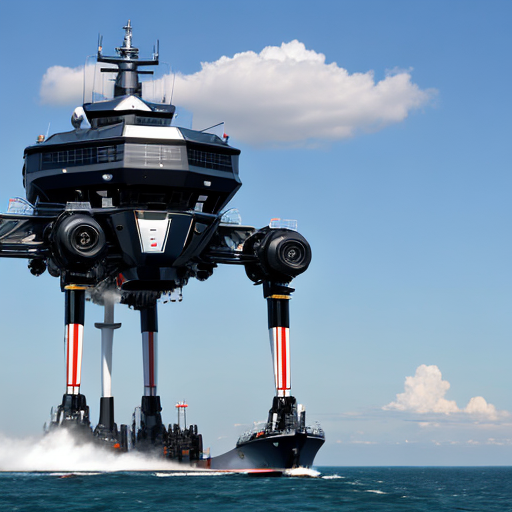07. March 2024
The worlds largest robots are setting sail

The world’s largest robots are setting sail
Ocean Infinity is building a fleet of 23 vessels that will survey the seabed for offshore wind farm operators and check underwater infrastructure for the oil and gas industry. The new vessel, the Armada, has cameras, microphones, radars, GPS and all manner of satellite communications. But for a ship that’s 78m in length there are only 16 people on board. A traditional ship carrying out the same kind of work would need a crew of 40 or 50.
Many of the roles can be done hundreds of miles away on land. A key test for this new way of working is commanding an underwater robot to descend from the deck to scan the seafloor. Autonomy, robotics and remote operation, along with artificial intelligence, will transform all transport sectors. Maritime will be no different and experiments are under way around the globe.
With fewer people on board, ships can be smaller, which means they require less fuel and have a much reduced carbon footprint. Some smaller vessels are already allowed to work with no-one onboard at all. British company Sea-Kit International is designing and building a fleet of these crewless boats. One was recently sent to Tonga to map the still-active underwater volcano that blew up spectacularly in 2022.
Vaquita was built for the Dutch survey company Fugro. It is controlled by a crew 475 miles away in an office in Aberdeen. Captain Dmitrij Dadycin: “I definitely don’t miss the pitching and rolling. At the end of your shift, you get to go home” The International Maritime Organisation (IMO) is grappling with all the issues surrounding autonomy at sea.
How will these technologies change the nature of work? Can they create new and different types of jobs to replace those they eliminate? How secure are the systems being developed - can they defend against cyber-attack and piracy? More fundamentally, are they robust and reliable enough?
What happens if a satellite link falls over? The IMO hopes to introduce voluntary codes defining best practice by 2028. The UK government has already taken a view on this topic. IMO director Heike Deggim: “There is a huge industry coming and the government obviously doesn’t want to miss out on the opportunities” Ocean Infinity captain Simon Macaulay has his eyes on the horizon.
He could foresee a situation where you have a master mariner who’s in charge of a vessel remotely or a number of vessels remotely. We send probes and satellites to the other side of the Solar System, so this can be done," he says.